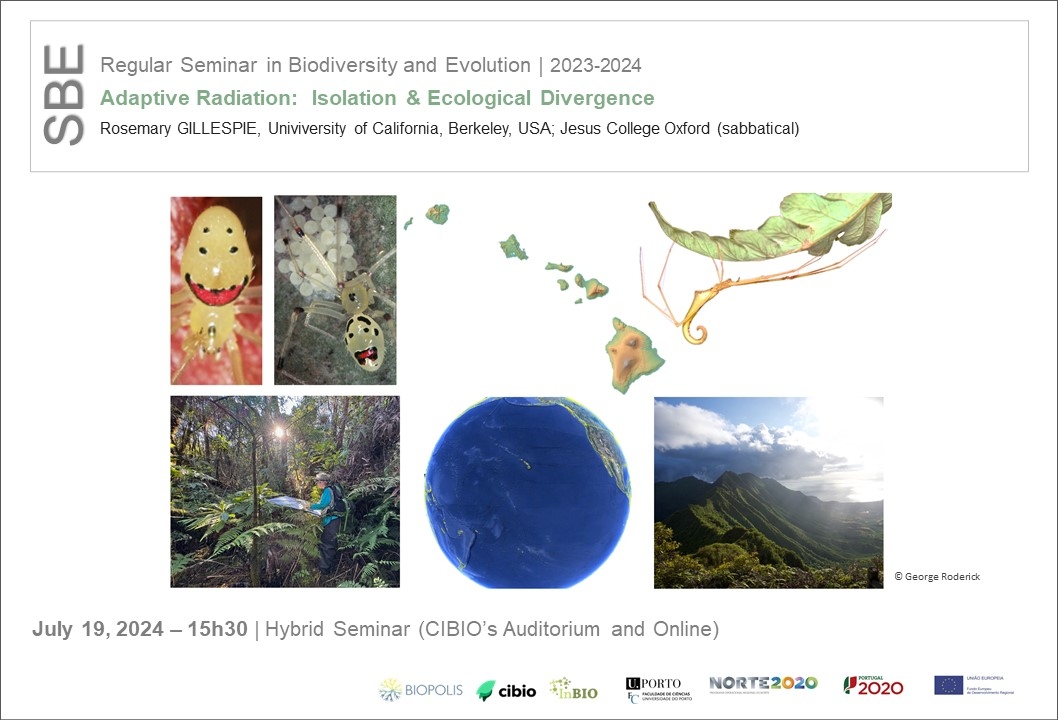Adaptive Radiation: Isolation & Ecological Divergence
Event 
REGULAR SEMINAR IN BIODIVERSITY AND EVOLUTION
July 19th, 2024
Rosemary GILLESPIE, Univiversity of California, Berkeley, USA; Jesus College Oxford (sabbatical) | 15h30 | Hybrid Seminar

REGULAR SEMINAR IN BIODIVERSITY AND EVOLUTION
Adaptive radiation is one of the key drivers of species diversity, yet the mechanism through which it is achieved, and the outcome of the process, are largely unknown. In many lineages, initial divergence results from environmental or sexual selection leading to divergence of species between environments and subsequent secondary contact. In other lineages, initial reproductive isolation may be achieved without divergent selection; here, ecological niche divergence can develop as a result of interactions between close relatives during secondary contact. The Hawaiian archipelago – in which each island provides a snapshot in time of the evolutionary process – is one system that can offer insights into the processes of adaptive radiation, allowing the early stages of radiation to be studied in real time. I identify lineages in which the abiotic environment appears to play the dominant role in adaptive diversification, with repeated and convergent evolution of sets of taxa adapted to similar sets of environmental conditions. In contrast, divergence in other lineages appears to be the result of character displacement associated with direct interacation between close relatives, leading to convergent evolution of niche-specialized ecomorphs within a given environment. I will discuss the importance of differentiating between patterns to understand the processes that underpin adaptive radiation.
Gillespie was born and educated in Scotland, receiving her B.Sc. in Zoology from Edinburgh University in 1980. She came to the U.S. to conduct graduate work on the behavioral ecology of spiders at the University of Tennessee. She started work at the University of Hawaii in 1987, initially as a postdoc, and then in 1992 as Assistant Professor in Zoology and Researcher in the Hawaiian Evolutionary Biology Program. It was during her first year in Hawaii that she discovered an adaptive radiation of Tetragnatha spiders and went on to work on the systematics and evolutionary ecology of the lineage. She joined the faculty at the University of California in Berkeley in 1999, where she continues her research focus on the islands of the Pacific, using islands of known age and isolation to assess the combined temporal and spatial dimension of biogeography and determine patterns of diversification, adaptive radiation, and associated community assembly and conservation challenges. She is a member of the American Academy of Arts and Sciences and has served as President of the American Genetics Association, the International Biogeography Society, the American Arachnological Society, and currently the International Society of Arachnology.
[Host: Raquel Vasconcelos, Conservation Genetics and Wildlife Management - CONGEN]
